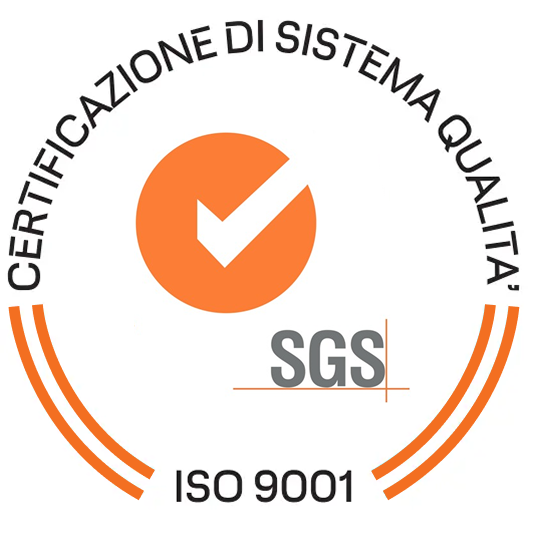Egypt ACID Number is the mandatory requirement for shipments to Egypt
We have helped many exporters and freight forwarders All over the world to get their Egypt AICD application Number . Connect us now to get one for you

ISO 9001 Certified by SGS
What are the required documents?
- Bill of Lading - A draft copy can be used for the draft.
- Commercial Invoice – Incoterm, reference, and date must be mentioned.
- Freight Invoice - It is necessary if the freight cost isn’t on the commercial invoice.
- Certificate Of Origin
What is Egypt Advance Crago Information Declaration (ACID)
- It serves as a distinct identification number created for every shipment entering Egypt.
- Use: Necessary for Egypt’s single-window customs platform, Nafeza.
- When Issued: It is applied for by the Egyptian importer prior to the export nation loading the shipment.
- Format: Usually a 19-digit number, such as ACID2025000001234567.
- It must be shared with the exporter prior to cargo loading and printed on all shipping documents, including the bill of lading, packing list, and commercial invoice.
- Goal: Assists Egyptian customs with pre-screening shipments to improve security and expedite clearance.
Who Needs an Egypt ACID
- Importer from Egypt - must sign up on the single-window Nafeza system. Prior to shipment loading at the origin port, the ACID number is applied for.
- International Shipper/Exporter requires the Egyptian importer's ACID number. This number must appear on all shipping documents, such as the packing list, bill of lading, and commercial invoice.
- 📌 Important Information: All shipments to Egypt must include ACID (not for courier packages or personally carried items). Egyptian Customs will not permit cargo to enter without ACID, and the shipment may be returned or subject to severe penalties. It covers all forms of transportation, including air, sea, and land freight.
How to Obtain egypt ACID Number
Using an e-token, which serves as the importer’s digital identity, the importer should enter his shipment details and information before requesting his ACID number.
To avoid potential security problems, the Risk Management System regulates all the data.
Submit Required Documents
Data and documents related to the shipment should be sent electronically by the importer. The documents are then sent to the Nafeza platform.
Processing & Validation
All shipment information and documents sent by the importer are checked and approved by the importer.Following the shipment's offloading, the cargo is examined and inspected. The shipment then departs the customs port as the last component.
ACID Number issuance
The shipment ACID is delivered to the importer via the Nafeza Portal. The exporter, importer, and bank are then automatically notified of the ACID. The ACID is valid for three months after it is issued.
Procedure
Data and documents related to the shipment should be sent electronically by the importer. The documents are then sent to the Nafeza platform.
All shipment information and documents sent by the importer are checked and approved by the importer.
Following the shipment’s offloading, the cargo is examined and inspected. The shipment then departs the customs port as the last component.
The shipment ACID is delivered to the importer via the Nafeza Portal. The exporter, importer, and bank are then automatically notified of the ACID. The ACID is valid for three months after it is issued.

ISO 9001 SGS Certified
24/7 Support
Ready to Get Your Egypt ACID Number ?
We provide comprehensive transportation services for our partners on the globe and always offer innovative solutions to deal with complex logistics challenges.
CTN's certificate service has revolutionized the way we handle compliance. What used to take hours of manual tracking is now automated, saving us significant time and resources. The notifications ensure we never miss an expiry date!

Reyansh
We rely on CTN to manage certifications for our entire team. The platform is intuitive, and the customer support is outstanding. It's the perfect solution for staying on top of our professional credentials

Ishaan
CTN certificate services give me peace of mind knowing our licenses and certifications are always current. The automated reminders are a lifesaver, and their detailed reporting keeps everything transparent and organized.

Oliver
FAQs related to Egypt ACID
Find quick answers to common questions about the Egypt ACID number process.
An ACID (Advance Cargo Information Declaration) Number is a unique 19-digit code issued through Egypt’s Nafeza system. It is mandatory for all shipments entering Egypt and must be printed on shipping documents to allow customs pre-screening and faster clearance.
The Egyptian importer must apply for the ACID number before the cargo is loaded at the port of origin. Without it, the shipment cannot be cleared in Egypt.
The ACID system was introduced to:
Enhance customs security and prevent fraudulent shipments
Facilitate faster cargo clearance
Digitally connect importers, exporters, and customs authorities
Cargo will be denied entry into Egypt.
Shipment may be returned to the exporter.
Additional costs and penalties may apply for non-compliance.
Yes, the ACID requirement applies to all commercial imports regardless of the mode of transport (sea, air, or land). Personal items and courier parcels may be exempt.
We assist both importers and exporters with:
Nafeza registration and ACID number application
Document preparation and compliance checks
Smooth coordination to avoid shipment delays
A Bill of Lading (BL or BoL) is a legal document issued by a carrier to a shipper that specifies the type, quantity, and destination of the goods being transported. It serves as a receipt of shipment, a document of title, and a contract between the shipper and the carrier.
A commercial invoice is a mandatory document for the export and import clearance process. It is sometimes used for foreign exchange control purposes. In the buyer’s country, customs officials rely on the commercial invoice to assess applicable import duties and taxes.
TNSA Shipping Consulting Private Limited
Contact Us
- CIN No: U74909DL2023PTC416490
International Office :-
- PO Box 3861 Walvis Bay Namibia AUHBuilding C/O Theo Ben Gurirab Street and 10th Road
- Al rawdah district-Riyadh Saudi Arabia Postal Code : 62461 Vat number : 3005369200003 Cr number : 5855068068
Copyright © 2025 All rights reserved – TNSA Shipping Consulting Pvt Ltd




